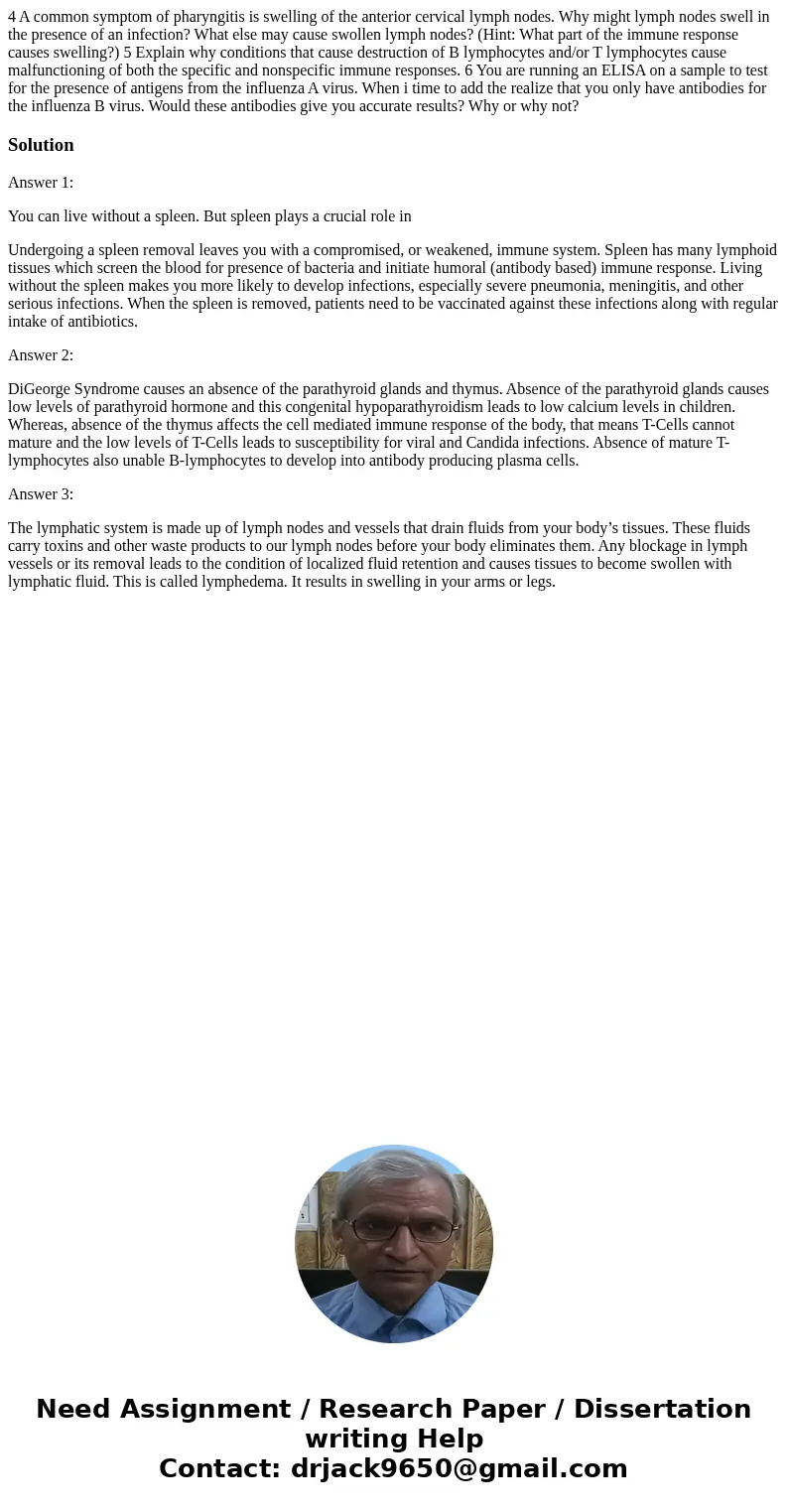4 A common symptom of pharyngitis is swelling of the anterio
Solution
Answer 1:
You can live without a spleen. But spleen plays a crucial role in
Undergoing a spleen removal leaves you with a compromised, or weakened, immune system. Spleen has many lymphoid tissues which screen the blood for presence of bacteria and initiate humoral (antibody based) immune response. Living without the spleen makes you more likely to develop infections, especially severe pneumonia, meningitis, and other serious infections. When the spleen is removed, patients need to be vaccinated against these infections along with regular intake of antibiotics.
Answer 2:
DiGeorge Syndrome causes an absence of the parathyroid glands and thymus. Absence of the parathyroid glands causes low levels of parathyroid hormone and this congenital hypoparathyroidism leads to low calcium levels in children. Whereas, absence of the thymus affects the cell mediated immune response of the body, that means T-Cells cannot mature and the low levels of T-Cells leads to susceptibility for viral and Candida infections. Absence of mature T-lymphocytes also unable B-lymphocytes to develop into antibody producing plasma cells.
Answer 3:
The lymphatic system is made up of lymph nodes and vessels that drain fluids from your body’s tissues. These fluids carry toxins and other waste products to our lymph nodes before your body eliminates them. Any blockage in lymph vessels or its removal leads to the condition of localized fluid retention and causes tissues to become swollen with lymphatic fluid. This is called lymphedema. It results in swelling in your arms or legs.

 Homework Sourse
Homework Sourse